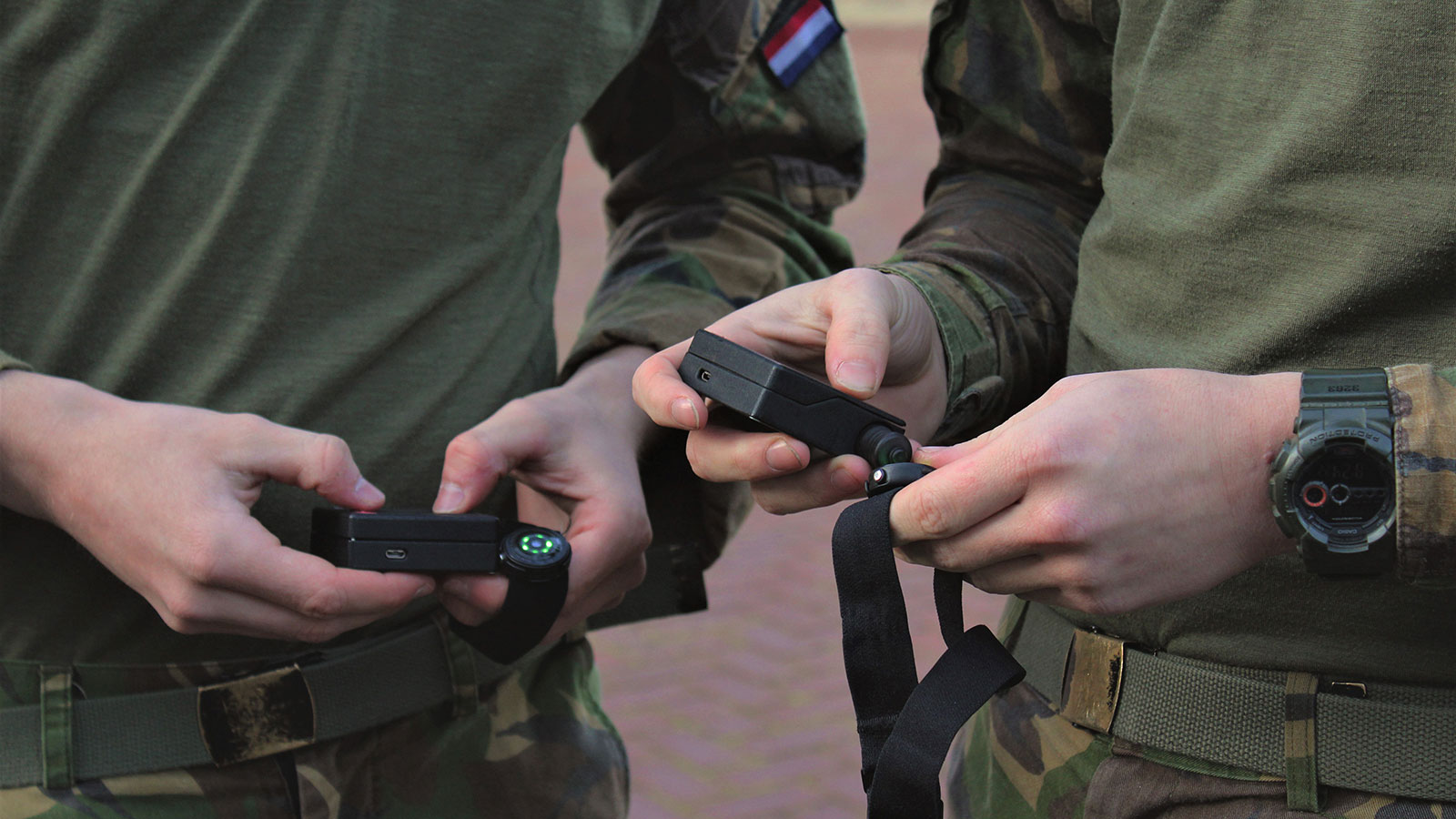Safety has the highest priority in physically demanding professions. Wearables can help develop new ways to ensure safety without sacrificing performance. They enable professionals to perform their essential work with less risk of serious injury. What can wearables mean for the military, fire brigade, and challenging industrial working environments?
Health monitoring of firefighters
High body temperatures are unavoidable in firefighting. The heat of physical exertion and of the environment in which firefighters work are dangerous. Wearables offer a solution for this. By monitoring the biometric data of firefighters and at the same time keeping track of environmental statistics, such as air temperature and CO2 concentration, the team leader can predict when hazards will occur, and he can intervene immediately. One example of such a remote monitoring system is the portable mHealth solution from Prometeo. This solution monitors the health of firefighters during exercises and work. The wearable measures ambient temperature and humidity and detects smoke. The portable device sends the environmental data together with the vital measurements of the firefighter to the cloud. There, they can analyze the data and gain insight into direct and long-term health risks.
The growing role of wearables in the military
Investment in the military wearables market is expected to grow from $4.2 billion in 2019 to $6.4 billion in 2025. This growth is partly due to the increasing need from military organizations. An example where wearables provide support is when preparing for real combat situations. During strenuous training, it can be difficult for soldiers to regulate their core body temperature properly. This can cause that core temperature to rise. High body temperatures can lead to overheating, which in turn can lead to disorientation, seizures, and brain damage. To detect the heat load of soldiers in time, Evalan has developed the ARMOR device. ARMOR monitors core body temperature during an exercise routine and helps identify potential overheating. As a result, soldiers can continue to train and work at the highest physical level possible while maintaining safety standards.
Monitoring employees in the industrial sector
There are also industrial environments where workers face challenging conditions, such as dealing with hazardous materials or high temperatures from complex and powerful equipment. Here, the use of wearables can also be of value and ensure worker safety. In some workplaces, the conditions can put workers at risk due to various environmental factors, such as extreme temperatures or bad weather.A wearable warns employees when they approach an unsafe area, such as a slippery floor or unstable surface, or when they get too close to a heavy machine. Also, the wearables measure physiological data, such as body temperature and perspiration. If this indicates that an employee is in danger of overheating, the wearable will alarm, and the employee can take a rest.
Wearables ensure that employees can responsibly practice their profession in these physically demanding professions. And it doesn’t stop there. These portable solutions also provide support in healthcare and sports. In our whitepaper, we delve into the sectors where wearable technology adds value. Download it here: https://evalan.com/en/download-white-paper/

